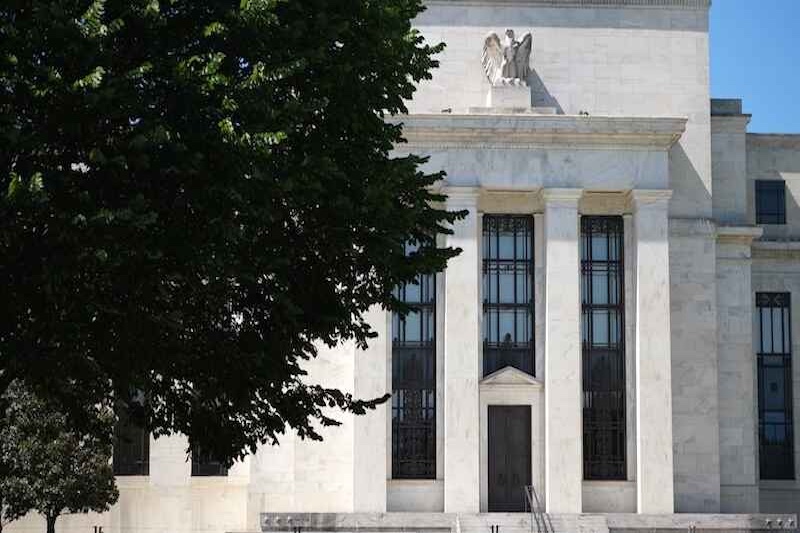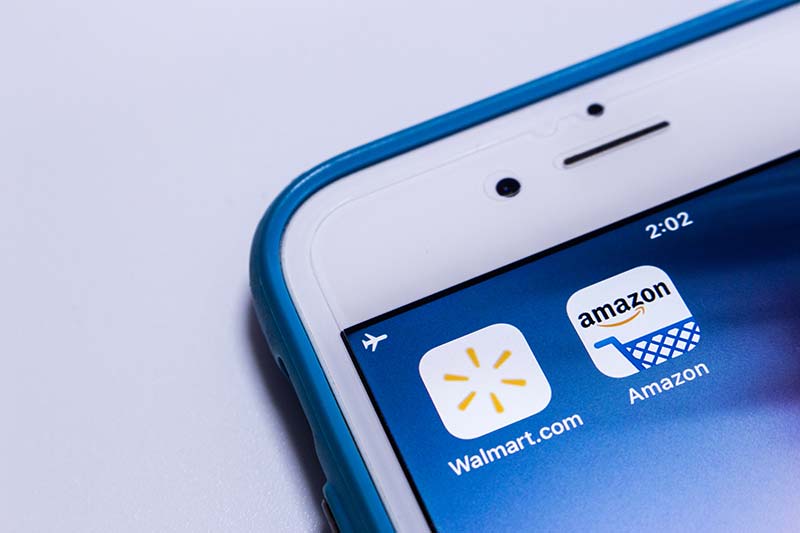Buy This, Not That: Summer Sizzlers and Vacation Busts
Shah Gilani|July 3, 2024

“Vacation’s all I ever wanted…”
Ready to turn summer wanderlust into cold, hard profits?
As summer travel kicks into high gear, I’ve got six travel and leisure stocks that should be either added to your bucket list… or be given one-star reviews.
Booking revenue is up 10% for one travel giant… with net income up a stunning 192%.
Another saw record first quarter bookings…
But a third is bouncing back and forth between profitability and loss.
And another is too diversified for its own good.
Which stocks are BUY… and which are NOT?
It’s all in my latest Buy This, Not That video.
Click on the thumbnail below to dive in.
TRANSCRIPT
Shah Gilani here with your weekly BTNT, as in Buy This, Not That.
This week, because it’s the Fourth of July on Thursday, and it’s going to be a long weekend, kind of marks the summer rush to vacay.
And who doesn’t want to vacay? “Vacation’s all I ever wanted.”
So we’ll talk about some travel leisure stocks in that space. And we’ll start off with the biggest online travel agency platform in the world, Booking Holdings (BKNG).
Now, you know Booking.com, but Booking Holdings has a lot of other names. The symbol for Bookings is BKNG.
They are the leader and the largest company in the online travel agency platform space.
They own, besides Booking.com, Priceline. They own Kayak. They own OpenTable. So they have a lot of other assets besides what you know them for, which is Booking.com.
So, there’s plenty of other things to bring in revenue, and they do pile in the revenue. A lot to support earnings. Excellent.
Gross bookings were up 10% to $43.5 billion for the quarter. That’s up 10% from the year ago quarter.
Nice. Gross bookings are important because that’s the volume of travel, hotels, cars, everything that people are booking through them. That’s pretty nice. Up 10%.
You have to be impressed with that.
The revenue on the quarter was $4.4 billion, up 17% year over year. Swing, batter.
And, of course, the granddaddy… net income for the quarter was up 192% from a year ago quarter.
BKNG is a BUY.

I like the assets they have. I like all the different companies they have contributing to their revenue.
The only problem with BKNG is it’s trading around $3,800, almost $3,900 a share.
So to buy BKNG, your broker has to offer fractional shares unless you got the big bucks and you want to lay down a whole bunch of money for a bunch of shares at $3,900 a share. But go with the fractional shares and buy BKNG.
It’s a BUY, people. I love it here.
The stock looks great as far as the chart. The numbers are great. Color me impressed.
Next up is Expedia (EXPE).
Expedia, EXPE, is – in the United States and probably globally – the principal rival of Booking Holdings.
Expedia, EXPE. Sorry. I’m just going to cut to the chase. NOT.

Why Booking and not Expedia? Not because it’s a competitor. There’s plenty of space in the sector.
Here’s why…
Let’s look at the recent numbers for Expedia. Total gross bookings came in for the most recent quarter at $30.2 billion. Compare that to Booking’s, which were $43.5 billion.
Now, $30.2 billion is still a good number for Expedia. But they were up only 3%, where Booking was up 10%.
Their revenue for the most recent quarter was up 8%.
[Booking] was up 17%. Okay? So it’s half of what [Booking’s] revenue increase pop was.
And they gave disappointing forward looking guidance on the earnings call.
So Expedia, while it’s a great company, it’s NOT a buy.
Moving on.
CCL. You know that symbol because I’ve given it to you before.
It’s Carnival Cruise Lines (CCL). Carnival is one of is the biggest – and I think the best run.
You’ve got a whole bunch of them, and I’ve talked about some of the cruise line companies as well as some of the hotel companies in previous BTNTs, and I did single out Carnival as a BUY.
I hope you bought it because it’s done well already. I think it’s going to do better.
It’s trading around $17, knocking on $18.
Besides being my favorite in the space, the stock’s been doing what I want to see it do. It’s a little sloppy, but it looks like it’s attempting to consolidate in different places. It should end up with a nice rounding bottom, which should be a platform to go a good bit higher.
I like Carnival Cruise Lines, CCL.
The stock popped 9% on its earnings because they were great. That was back in the end of June on the Q2 numbers. They had higher onboard spending, which is really important. They had a rise in ticket prices.
They had a lot of things working for them in terms of revenue.
And they saw record first quarter bookings. The second quarter wasn’t quite a record on bookings, but it was still super strong. They raised full year guidance in their earning support in the call.
Again, I gave it a BUY recommendation before the earnings came out. I hope you got in there and you got a ride along with that nice little pop.
Another little thing about them, which isn’t so little, is EPS adjusted for the quarter was $0.11.
The estimate was for $0.01, so that just blew apart analyst expectations. $0.11 EPS versus a penny. What’s even better is a year ago CCL had a loss of $0.31 a share. So they went in a year from a loss of $0.31 a share to a profit of $0.11 a share.
Wow. Color me impressed. And the forward guidance was, like I said, was positive.
The last little checkbox here, which is really cool, was total customer deposits for Q2. That’s looking forward customer deposits for future and upcoming trips, travel on cruise lines, on Carnival Cruise Lines. It was a record $8.3 billion. Now those people, when they get on the Carnival ships, are going to do more onboard spending, and the ticket prices are higher. So I think the earnings are going to get better and better.
So CCL, Carnival Cruise Lines, is a BUY.

Next up is Uber (UBER).
A lot of you asked me about Uber. Now Uber Technologies, UBER, I want to go with it because people are taking Uber to the airport. People are taking Uber to the docks. They could get on their Carnival Cruise Lines ships. I use Uber.
I want to like it, but I don’t. It’s more of a gamble here, and I’ll tell you why.
Not so long ago, the company was finally profitable. Yay. But this quarter, the most recent quarter, they were not profitable.
They had a pretty substantial loss.
The May report for their fiscal quarter saw revenue increased 15%. Excellent.
But the net loss widened from $157 million a year ago quarter to a $654 million loss in the most recent quarter. Now, they’re supposed to be profitable, but they can’t string a bunch of quarters together that are profitable.
If you’re profitable, you’re profitable. You can’t be… “We’re profitable, but we’re not. Oh, we are again. Now we’re not.”
That bothers me. So do I want to invest in a stock, in a company, that’s up and down like that in terms of profitability?
The reason they gave for the loss, the net loss of $654 million, was a markdown of $721 million on equity investments. This is another problem. If you have to write down your equity investments by $721 million, then you didn’t make very good investments, did you? That’s worrisome.
What were those investments? What are they blowing money on?
It’s got nothing to do with the operating business. I think that’s okay, if not pretty good, except I’m not sure what’s going on behind the scenes.
So as far as Uber goes, NOT.

It’s a gamble. If you like it and you like it because the operating business looks like it’s going to continue to grow – I don’t know at what pace, but I think it’s going to continue to grow – then maybe buy some leap call options or call spreads on Uber.
But I wouldn’t put my hard money down on Uber now. I think it’s going to be a drag. It’s not going to be one of those rocket riders.
So I’m going to say NOT for Uber.
Next up is… well, people are putting gas in their Ubers to drive us all around, and people are traveling all over the place. It’s the summer.
So I found an ETF that is a gasoline tracker. It’s the U.S. Gasoline ETF (UGA). Symbol is UGA.
It’s trading around $69. I’m going to say NOT, people. Even though I like gas and I think gas prices can rise, it’s not worth the trade. The stock is really sloppy. UGA just doesn’t float my boat.
And another reason it doesn’t float my boat is they don’t just invest in gasoline futures to track the gas price.
They also invest in oil futures, and home heating oil, and natural gas. There’s too many futures, different contracts in there that have to get rolled over for me to think that UGA is going to do much of anything. So UGA, if you want a gas play, no. It’s not UGA.
So it’s a NOT.

Last but not least, another one that you asked me about is the Invesco Dynamic Leisure and Entertainment ETF (PEJ).
Good call, everybody.
PEJ is the symbol, and the answer is NOT. It’s too small. It’s got $266 million in assets. That’s tiny for an ETF. So it’s not attracting assets.
That means it’s going to be fairly illiquid. That means it’s just not worth it.
It’s not going to move the way you want. You’re better off buying an individual play like Booking Holdings than something like PEJ that’s got a lump of these companies in it.
Their No. 1 holding is Royal Caribbean. I like Carnival better.
So if Carnival is at the top, I might say, yeah, give it a shot. But I don’t like that they have Marriott, Hilton, Brinker International, Live Nation, Warner, Disney.
So, yeah, it’s cool, but I think it’s just too diversified, and there are too many companies in there that can go the wrong way.
So as far as PEJ goes, it sounds pretty cool, “the dynamic leisure and entertainment ETF,” woo, but NOT.
It’s NOT a buy.

Again, you’re better off streamlining and focusing your capital investments on single names that will likely have better price action relative to the sector, relative to what they do, than a diversified portfolio that can get watered down by some of the holdings or too many holdings.
That’s why mutual funds hardly ever beat their benchmarks. They’re too diversified.
The folks who do really well are the ones that streamline their portfolios down to a handful of stocks that are moving, that have momentum, that are in the right sectors, that are hot and continue to be hot. Like big tech, obviously.
Those are the people, those are the funds. Those are the hedge funds that do really, really well. And that’s what we do at my services. We focus on the hot stuff.
That’s it for today.
Happy Fourth of July, everybody. I’ll catch you guys next week. Cheers.

Shah Gilani
Shah Gilani is the Chief Investment Strategist of Manward Press. Shah is a sought-after market commentator… a former hedge fund manager… and a veteran of the Chicago Board of Options Exchange. He ran the futures and options division at the largest retail bank in Britain… and called the implosion of U.S. financial markets (AND the mega bull run that followed). Now at the helm of Manward, Shah is focused tightly on one goal: To do his part to make subscribers wealthier, happier and more free.



